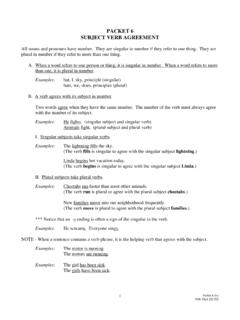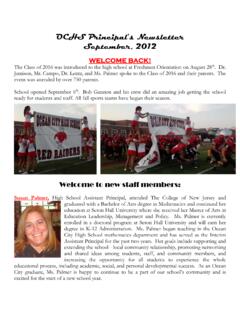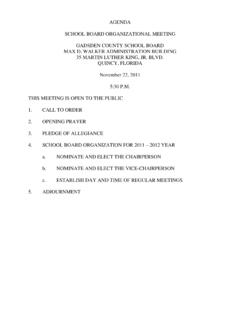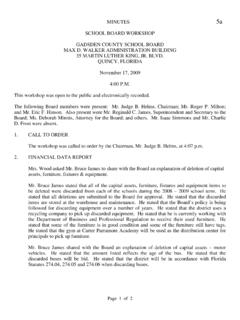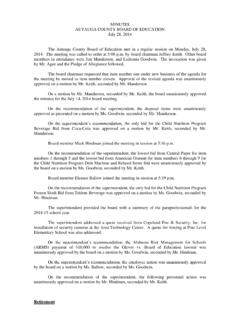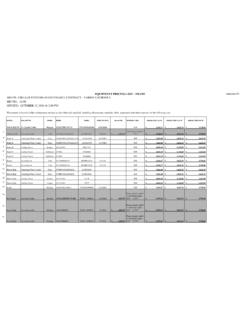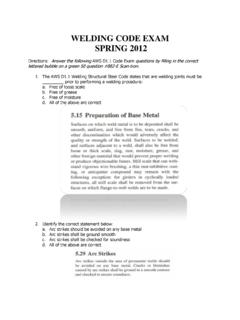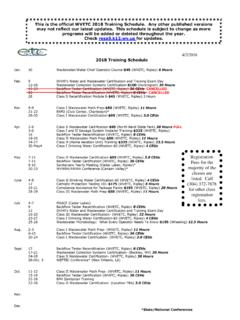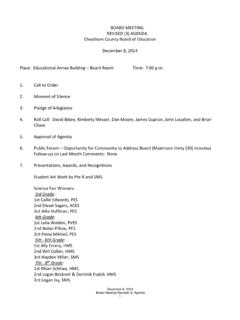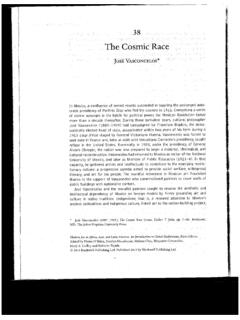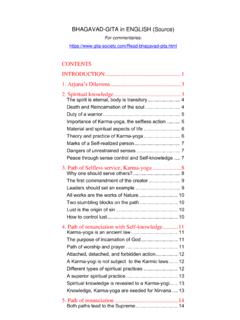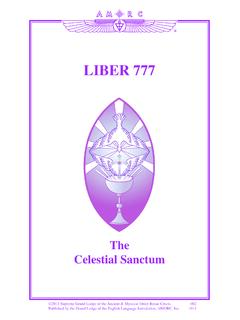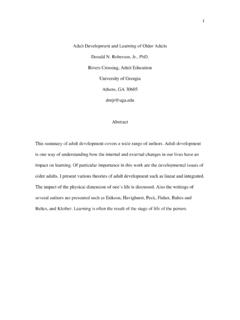Transcription of The Cold War: A New History - PC\|MAC
1 Table of ContentsTitle PageCopyright PageDedicationPreface CHAPTER ONE - THE RETURN OF FEARCHAPTER TWO - DEATHBOATS AND LIFEBOATSCHAPTER THREE - COMMAND VERSUS SPONTANEITYCHAPTER FOUR - THE EMERGENCE OF AUTONOMYCHAPTER FIVE - THE RECOVERY OF EQUITYCHAPTER SIX - ACTORSCHAPTER SEVEN - THE TRIUMPH OF HOPE EPILOGUENOTESBIBLIOGRAPHYPHOTOGRAPH CREDITSMAP SOURCESINDEXALSO BY JOHN LEWIS GADDISThe United States and the Origins of the Cold War, 1941 1947 Russia, the Soviet Union, and the United States: An Interpretive History Strategies of Containment: A Critical Appraisal ofAmerican National Security Policy During the Cold War The Long Peace: Inquiries into the History of the Cold War The United States and the End of the Cold War: Implications,Reconsiderations, Provocations We Now Know: Rethinking Cold War History The Landscape of History : How Historians Map the Past Surprise, Security, and the American ExperienceTHE PENGUIN PRESS Published by the Penguin Group Penguin Group (USA) Inc.
2 , 375 Hudson Street, New York, New York 10014, Penguin Group (Canada), 90 Eglinton Avenue East, Suite 700, Toronto, Ontario, Canada M4P 2Y3 (a division of Pearson Penguin Canada Inc.) Penguin Books Ltd, 80 Strand, London WC2R oRL, England Penguin Ireland, 25 St. Stephen s Green, Dublin 2, Ireland (a division of Penguin Books Ltd) Penguin Books Australia Ltd, 250 Camberwell Road, Camberwell, Victoria 3124, Australia (a division of Pearson Australia Group Pty Ltd) Penguin Books India Pvt Ltd, 11 Community Centre, Panchsheel Park, New Delhi 110 017, India Penguin Group (NZ), Cnr Airborne and Rosedale Roads, Albany, Auckland 1310, New Zealand (a division of Pearson New Zealand Ltd) Penguin Books (South Africa) (Pty) Ltd, 24 Sturdee Avenue, Rosebank, Johannesburg 2196, South Africa Penguin Books Ltd, Registered Offices: 80 Strand, London WC2R oRL, England First published in 2005 by The Penguin Press,a member of Penguin Group (USA) Inc.
3 Copyright John Lewis Gaddis, 2005 All rights reserved Photograph credits appear on page 315. Map sources appear on page 316. Library of Congress Cataloging-in-Publication Data Gaddis, John Lewis. The Cold War : a new History / John Lewis Gaddis. p. cm. Includes bibliographical references and : 978-1-440-68450-01. Cold War. 2. World politics 1945 1989. I. Title. 5 dc222005053406 Without limiting the rights under copyright reserved above, no part of this publication maybe reproduced, stored in or introduced intoa retrieval system, or transmitted, in any form or by any means (electronic, mechanical, photocopying, recording, or otherwise),without the prior written permission of both the copyright owner and the above publisher of this book. The scanning, uploading, and distribution of this book via the Internet or via any other means without the permission of the publisheris illegal and punishable by law.
4 Please purchase only authorized electronic editions and do not participate in or encourage electronicpiracy of copyrightable materials. Your support of the author s rights is MEMORY OF GEORGE F. KENNAN 1904 2005 PREFACEEVERY MONDAY AND WEDNESDAY afternoon each fall semester I lecture to several hundredYale undergraduates on the subject of Cold War History . As I do this, I have to keep reminding myselfthat hardly any of them remember any of the events I m describing. When I talk about Stalin andTruman, even Reagan and Gorbachev, it could as easily be Napoleon, Caesar, or Alexander the members of the Class of 2005, for example, were only five years old when the Berlin Wall camedown. They know that the Cold War in various ways shaped their lives, because they ve been told howit affected their families.
5 Some of them by no means all understand that if a few decisions hadbeen made differently at a few critical moments during that conflict, they might not even have had alife. But my students sign up for this course with very little sense of how the Cold War started, what itwas about, or why it ended in the way that it did. For them it s History : not all that different from thePeloponnesian yet, as they learn more about the great rivalry that dominated the last half of the last century,most of my students are fascinated, many are appalled, and a few usually after the lecture on theCuban missile crisis leave class trembling. Yikes! they exclaim (I sanitize somewhat). We hadno idea that we came that close! And then they invariably add: Awesome! For this first post ColdWar generation, then, the Cold War is at once distant and dangerous.
6 What could anyone ever havehad to fear, they wonder, from a state that turned out to be as weak, as bumbling, and as temporary asthe Soviet Union? But they also ask themselves and me: how did we ever make it out of the Cold Waralive?I ve written this book to try to answer these questions, but also to respond at a much less cosmiclevel to another my students regularly pose. It has not escaped their attention that I ve writtenseveral earlier books on Cold War History ; indeed, I regularly assign them one that takes almost 300pages just to get up to 1962. Can t you cover more years with fewer words? some of them havepolitely asked. It s a reasonable question, and it came to seem even more so when my formidablypersuasive agent, Andrew Wylie, set out to convince me of the need for a short, comprehensive, andaccessible book on the Cold War a tactful way of suggesting that my previous ones had not I regard listening to my students and my agent as only slightly less important than listening tomy wife (who also liked the idea), the project seemed worth taking Cold War: A New History is meant chiefly, therefore, for a new generation of readers for whomthe Cold War was never current events.
7 I hope readers who lived through the Cold War will alsofind the volume useful, because as Marx once said (Groucho, not Karl), Outside of a dog, a book is aman s best friend. Inside a dog, it s too dark to read. While the Cold War was going on it was hard toknow what was happening. Now that it s over and now that Soviet, East European, and Chinesearchives have begun to open we know much more: so much, in fact, that it s easy to getoverwhelmed. That s yet another reason for writing a short book. It s forced me to apply, to all thisnew information, the simple test of significance made famous by my late Yale colleague RobinWinks: So what? A word as well about what this book is not meant to be. It s not a work of original scholarship. ColdWar historians will find much of what I say familiar, partly because I ve drawn a lot of it from theirwork, partly because I ve repeated some things I ve said in my own.
8 Nor does the book attempt tolocate roots, within the Cold War, of such post Cold War phenomena as globalization, ethniccleansing, religious extremism, terrorism, or the information revolution. Nor does it make anycontribution whatever to international relations theory, a field that has troubles enough of its ownwithout my adding to will be pleased, though, if this view of the Cold War as a whole produces some new ways oflooking at its parts. One that has especially struck me is optimism, a quality not generally associatedwith the Cold War. The world, I am quite sure, is a better place for that conflict having been fought inthe way that it was and won by the side that won it. No one today worries about a new global war, or atotal triumph of dictators, or the prospect that civilization itself might end.
9 That was not the case whenthe Cold War began. For all its dangers, atrocities, costs, distractions, and moral compromises, theCold War like the American Civil War was a necessary contest that settled fundamental issuesonce and for all. We have no reason to miss it. But given the alternatives, we have little reason eitherto regret its having Cold War was fought at different levels in dissimilar ways in multiple places over a very longtime. Any attempt to reduce its History exclusively to the role of great forces, great powers, or greatleaders would fail to do it justice. Any effort to capture it within a simple chronological narrativecould only produce mush. I ve chosen instead to focus each chapter on a significant theme: as a result,they overlap in time and move across space.
10 I ve felt free to zoom in from the general to theparticular, and then back out again. And I ve not hesitated to write from a perspective that takes fullyinto account how the Cold War came out: I know no other , I want to express my appreciation to the people who inspired, facilitated, and patientlywaited for this book. They certainly include my students, whose continuing interest in the Cold Warsustains my own. I m grateful also to Andrew Wylie, as I know future students will be, for havingsuggested this method of covering more years with fewer words and for having since helped severalof my former students publish their own books. Scott Moilers, Stuart Proffitt, Janie Fleming, VictoriaKlose, Maureen Clark, Bruce Giffords, Samantha Johnson, and their colleagues at Penguin showedadmirable equanimity in the face of missed deadlines, and exemplary efficiency in producing thisoverdue book once it was done.
